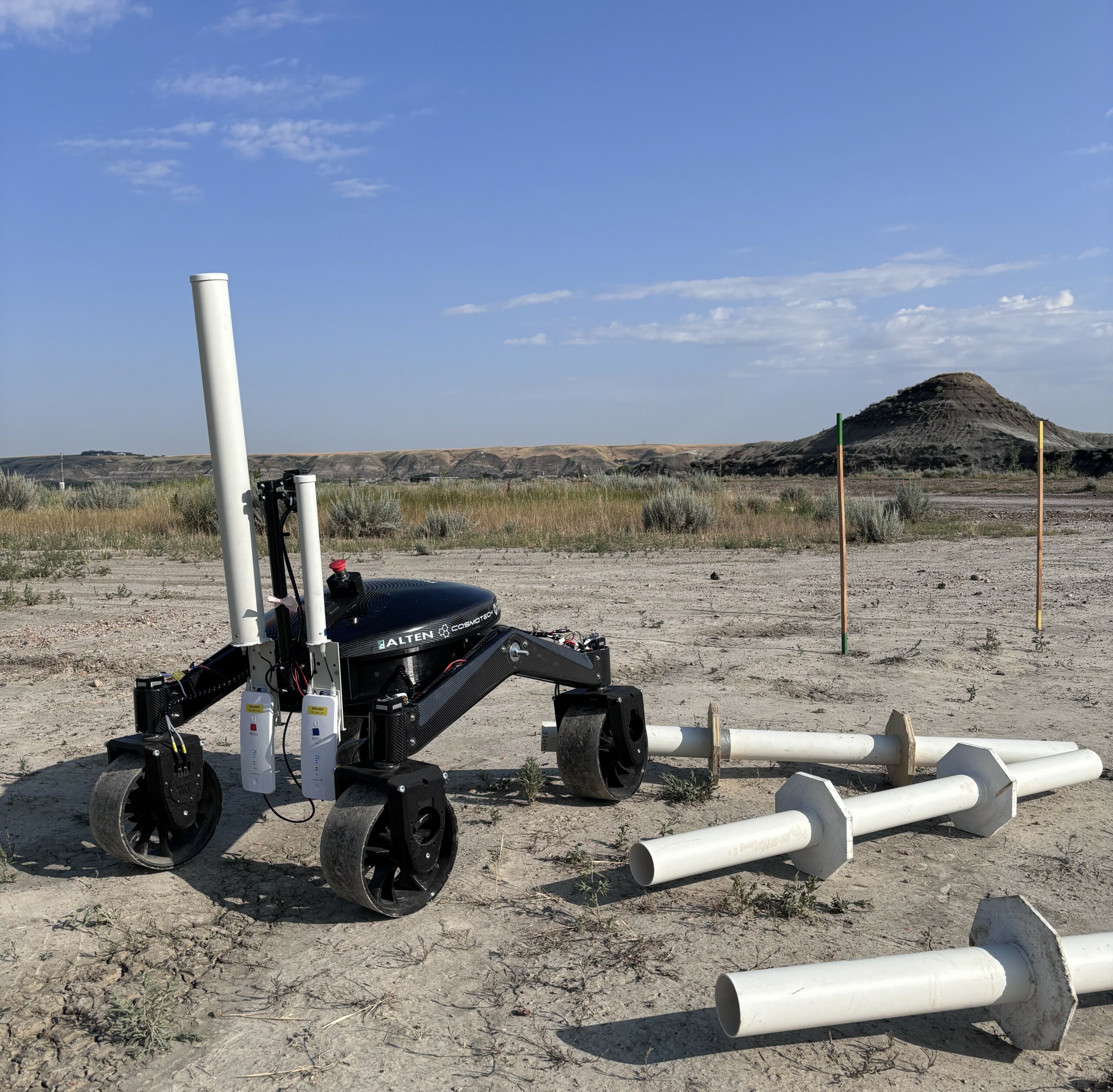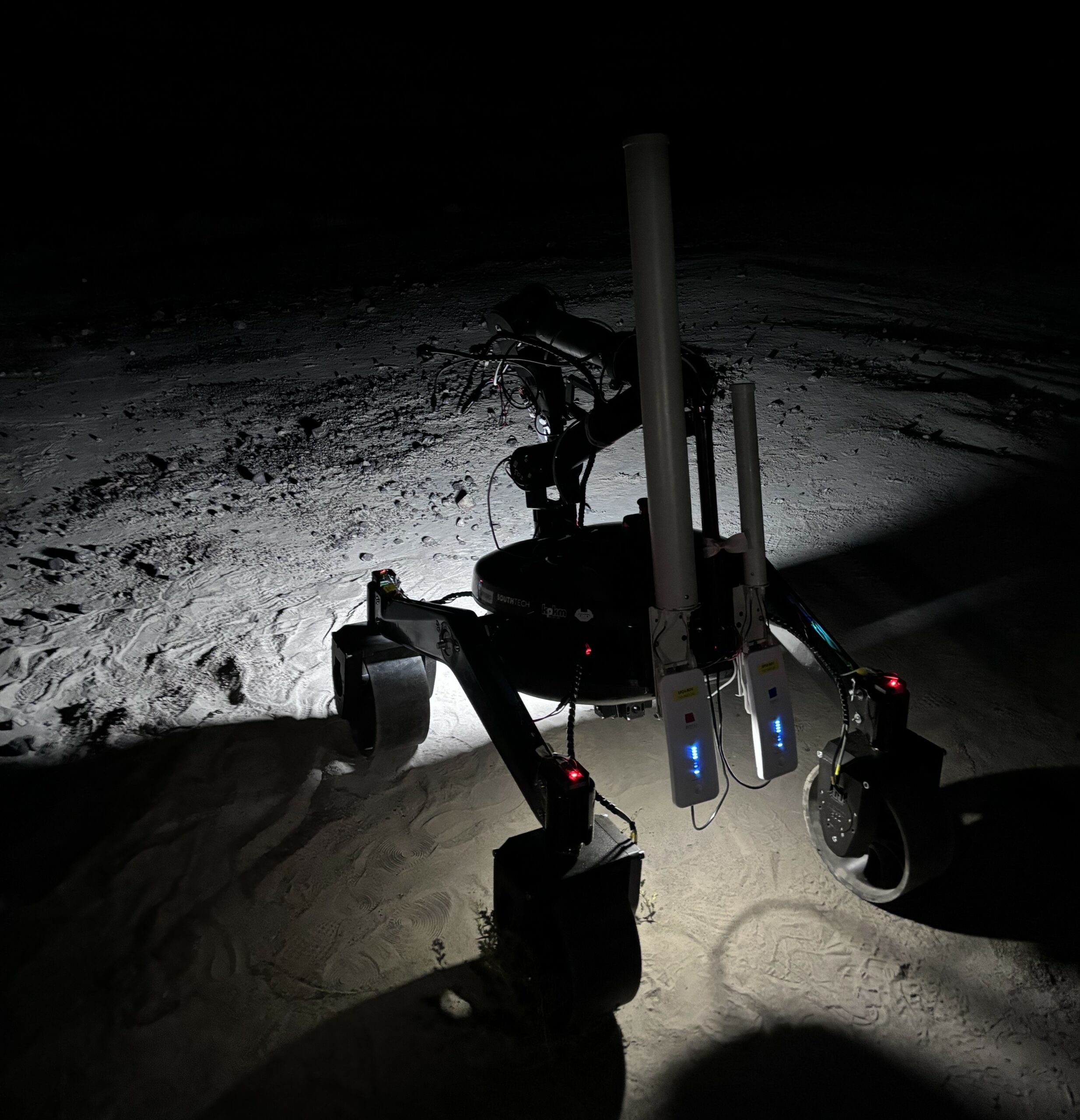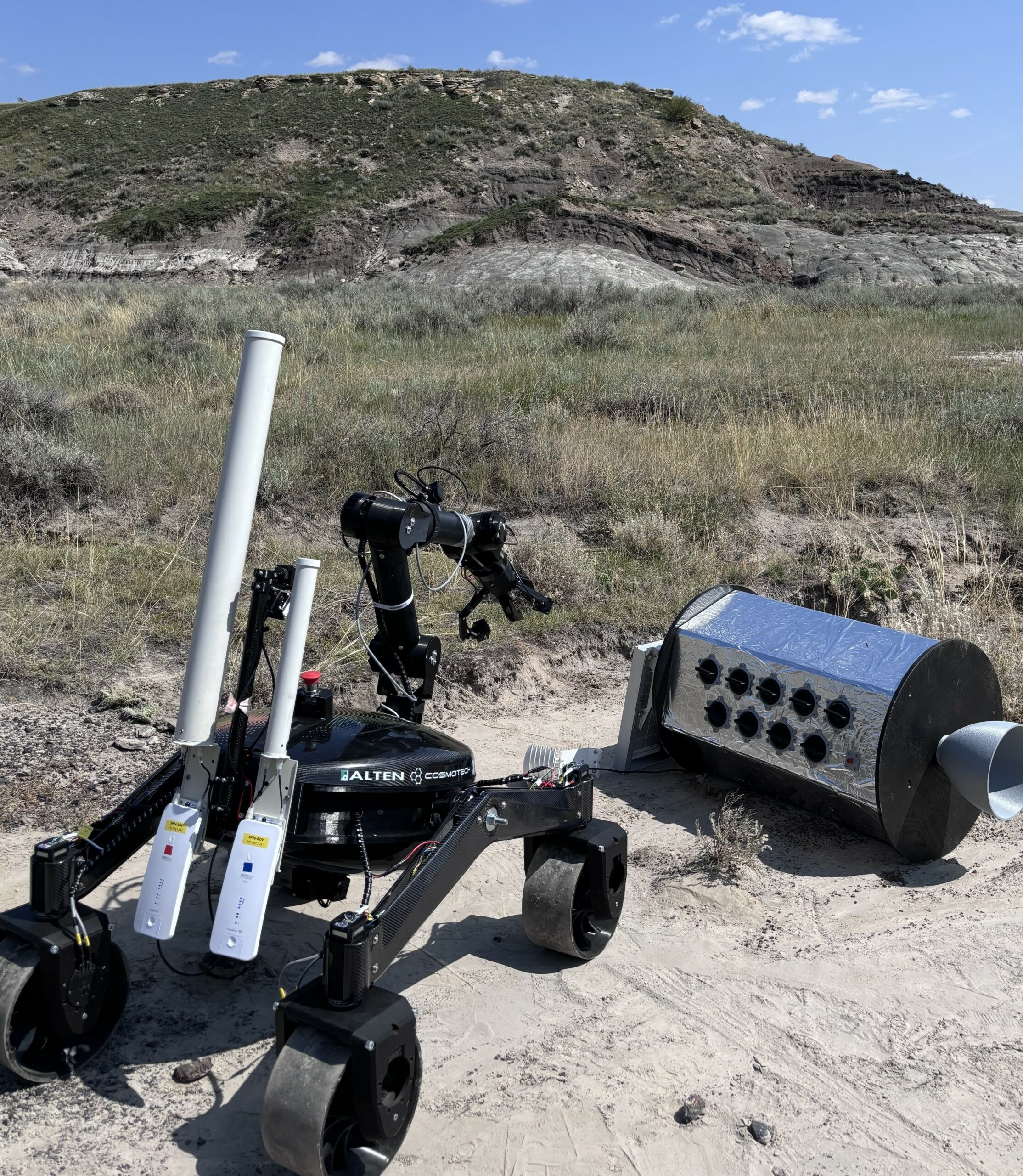Start - Aktualności - The rover with a successful mission in Canada

The rover with a successful mission in Canada
The Silesian Phoenix Student Science Club from the Silesian University of Technology took part in the Canadian International Rover Challenge. Their Mars Rover Phoenix III made a big impression on everyone, and they managed very well in the competition.
This year, the Silesian Phoenix Student Science Club was represented in Canada by nine people. It was a well-balanced team consisting of rover operators, developers, electronics engineers, mechanics, and members of the science section. Each had specific tasks assigned, which allowed to efficiently carry out missions, make necessary modifications and quickly react to possible defects. This was crucial in the context of intense competition, where every minute often counted.
"Our team is constantly monitoring all the international Rover Challenge competitions," says Jakub Gurgul, project leader from Silesian Phoenix. “Last year we participated in the Anatolian Rover Challenge in Turkey, which was a valuable experience for us. But we wanted to raise the bar and face an even more difficult challenge. This time, the CIRC competition in Canada attracted our attention. At the beginning of the year, we started the application process, submitted the necessary documentation and in April we received confirmation of participation in the event. It was a great step forward for us and a motivator for further demanding work on the robot.
The team does not hide that they had a lot of work before leaving. Logistics was one of the most difficult elements of the whole project.
We had to make sure that both the rover and our entire team arrived in Canada on time – says a student of the Silesian University of Technology. Our team flew out a few days before the competition. However, the rover itself set off on the journey almost two weeks earlier, so that it could be prepared on the spot. Thanks to careful coordination, both the equipment and the people arrived on time, which allowed us to focus on the competition.

The Canadian International Rover Challenge is a set of five competitions in with twenty teams take part.
“Each task tested the rover’s abilities in various conditions – from difficult terrain, through navigation in the dark, to manipulation of objects using a robotic arm,” explains Jakub Gurgul. - An example would be taking soil samples or reaching designated control points. - What is important, all tasks were performed without a direct view of the rover - we operated it remotely, based on camera images and sensor readings. This control method is one of the biggest challenges, requiring not only precise technology but also extensive team experience, which required hours of on-campus testing.
Ultimately, students of the Silesian University of Technology took eighth place in the competition. They are extremely proud of their result. This particular challenge was the second time that the Phoenix III rover was used.
- This was a great achievement for us. The tasks during the competition were much more demanding than those in Turkey – the larger mission area and the need for precise operation in difficult conditions required us to concentrate fully. We are glad that our work and preparations have resulted in such a result. This is an additional motivation for further development. Of course, we do not stop at further work on the robot and next year we hope to take a higher place – sums up Jakub.

In addition to memories, experience and satisfaction with the result, our team also comes back with praise. The Phoenix III rover has attracted a lot of interest in Canada. Especially due to the advanced camera system and the innovative materials from which it was made.
“The camera system proved to be one of our greatest assets – we were able to get a stable view from ten cameras at the same time, which was a big advantage over the competition, which had problems even with handling three cameras at the same time,” says the project leader from Silesian Phoenix. “Our composite structure stood out from other teams that mainly focused on traditional metal structures. This is an important praise for us, because from the beginning we tried to create a rover that will not only fulfil all functions but will also be aesthetic and innovative in terms of design.
For most students from Silesia Phoenix, this was the first such a long trip and the first visit to Canada. Everyone agrees that this is an excellent addition to studying.
“This experience has not only given us practical knowledge, but also the opportunity to test our rover in truly extreme conditions. Studies are not only learning in lecture halls, but above all an opportunity to implement ambitious projects such as this one. They shape us as engineers and technology enthusiasts” – says Jakub Gurgul.
Photos by Jakub Gurgul
"Participation in the event was co-financed as part of the implementation of the task commissioned by the Minister of Science entitled "Participation of the Silesian Phoenix team in the international Canadian Rover Challenge 2024."










